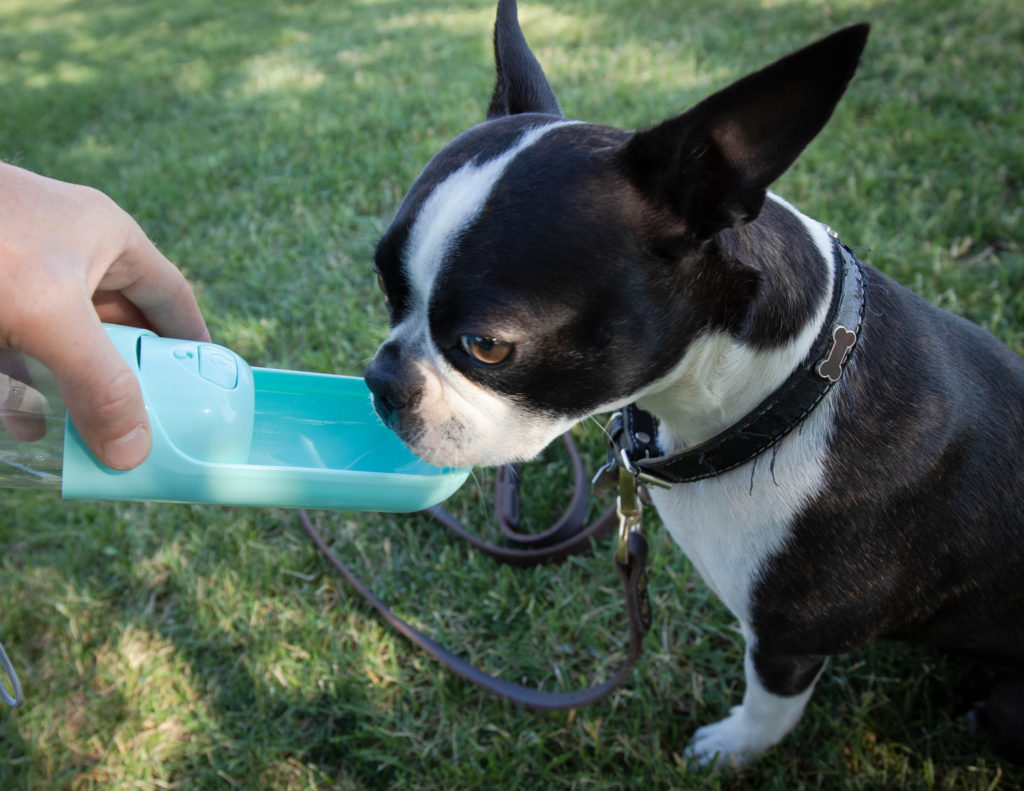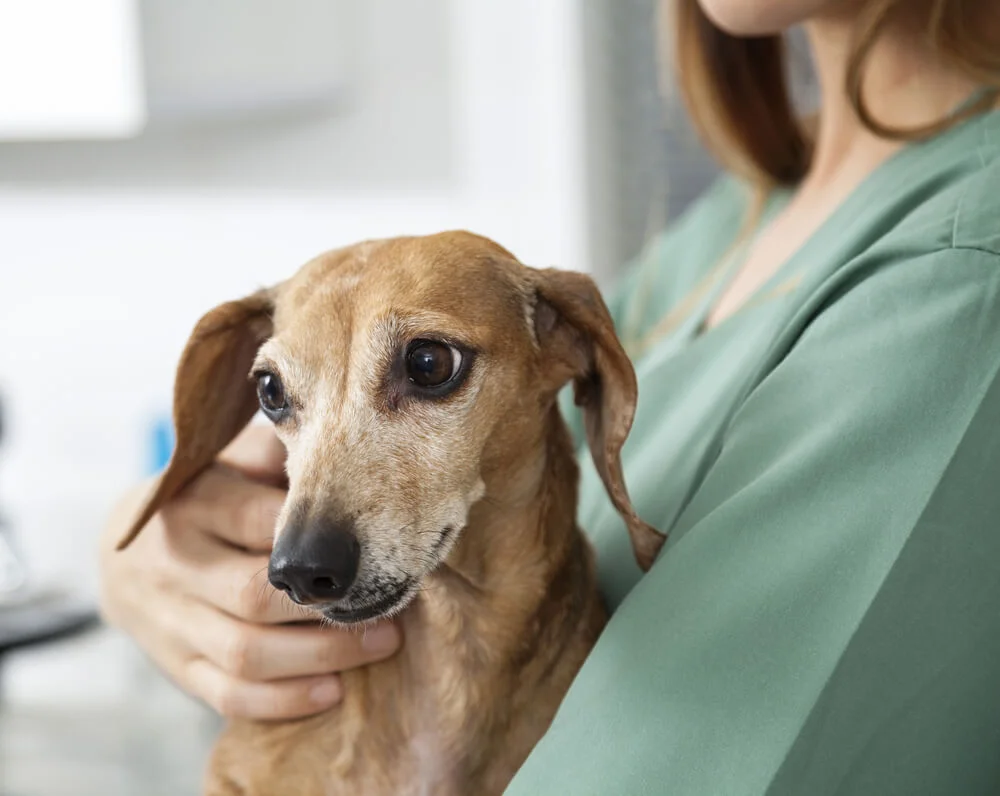Dogs can typically survive without food for about three to five days, depending on their health and age. However, this timeframe can vary widely based on several factors.
Understanding how long a dog can go without food is crucial for every pet owner. Dogs are more than just pets; they are family members. Their well-being directly affects our happiness. Knowing what to expect if your dog refuses to eat can help you act quickly.
Factors like age, weight, and health play a big role. While a healthy dog may last several days without food, a sick dog could suffer much sooner. It’s essential to be aware of warning signs and take immediate action when needed. This knowledge helps ensure your furry friend stays happy and healthy.
Introduction To Canine Fasting
Dogs can go without food for different lengths of time. This ability is tied to their natural instincts. Understanding these instincts helps dog owners know what to expect.
Fasting can happen for various reasons. It may be due to illness, stress, or just picky eating. Knowing how dogs respond to fasting is important for their health.
The Natural Fasting Instincts Of Dogs
Dogs have instincts from their wild ancestors. In the wild, food can be scarce. Dogs learned to survive periods without eating.
This instinct helps them adapt to changes. A dog can skip meals without immediate harm. They can rely on body fat for energy.
Fasting can also support digestive health. It gives the digestive system a break. This natural process can help with overall wellness.
Factors Influencing A Dog's Ability To Fast
Many factors affect how long a dog can fast. Age plays a big role. Puppies and older dogs have different needs.
Health conditions matter too. Dogs with illnesses may need regular meals. Size and breed also influence fasting capabilities.
Activity level affects their energy needs. Active dogs may need food more often. Stress or anxiety can change a dog's appetite.
These factors help determine how long a dog can go without food. Understanding them is key for responsible pet care.
The Role Of Nutrition In Dog Health
Nutrition is vital for a dog's overall health. A balanced diet helps dogs grow strong. It supports their immune system and keeps them active. Without proper nutrition, dogs can face serious health issues. Knowing what nutrients they need is important for every dog owner.
Essential Nutrients For Dogs
Dogs require several key nutrients to stay healthy. These include:
- Proteins: Essential for muscle development and repair.
- Fats: Provide energy and support skin health.
- Carbohydrates: Supply energy and aid digestion.
- Vitamins: Help with various body functions.
- Minerals: Support bone health and metabolic processes.
Each nutrient plays a unique role in maintaining health.
Consequences Of Nutritional Deficiencies
Missing essential nutrients can lead to serious problems. Here are some potential consequences:
| Nutrient Deficiency | Possible Effects |
|---|---|
| Protein | Weak muscles, poor coat quality |
| Fat | Dry skin, low energy levels |
| Vitamins | Weak immune system, poor vision |
| Minerals | Bone problems, dental issues |
Always provide a balanced diet. Regular vet check-ups can help monitor your dog's health.
Assessing Your Dog's Health And Diet
Understanding your dog's health is essential. A good diet keeps them strong. It helps them recover from illness. Knowing how long a dog can go without food matters. It depends on their health and diet.
Evaluating Your Dog's Body Condition
Body condition shows your dog's overall health. Check your dog's weight and shape. Use the following points to evaluate:
- Ribs: You should feel them easily, but not see them.
- Waist: Look for a noticeable waist when viewed from above.
- Abdomen: It should tuck up when viewed from the side.
Use a scoring system. Here’s a simple guide:
| Score | Description |
|---|---|
| 1 | Very underweight, ribs visible |
| 5 | Ideal weight, ribs felt |
| 9 | Obese, ribs not felt |
Regular check-ups help track your dog's weight. Consult a vet if you notice changes. A healthy dog is more resilient during food shortages.
Understanding A Balanced Diet For Dogs
A balanced diet supports health and energy. It includes:
- Proteins: Essential for muscle growth.
- Carbohydrates: Provide energy for daily activities.
- Fats: Help with skin and coat health.
- Vitamins: Support immune function and overall well-being.
- Minerals: Important for bone health and enzyme functions.
Consult your vet for specific dietary needs. Each dog is unique. Factors include age, breed, and health issues.
Ensure clean, fresh water is always available. Hydration is key to health. Monitor your dog's eating habits closely. Changes can signal health issues.

Credit: pawprides.com
Typical Duration Dogs Can Go Without Food
Many dog owners worry about their pets' eating habits. Understanding how long dogs can go without food is important. Dogs can fast for different periods based on several factors.
Average Fasting Period For Healthy Dogs
Healthy adult dogs can typically fast for about three to five days. Some dogs may last up to seven days without food. This depends on their size and health. A dog's hydration level is also crucial. A well-hydrated dog may tolerate fasting better.
After three days, the risk of health issues increases. Dogs may lose weight and energy. They may also become lethargic. Long fasting can lead to serious health problems.
How Age And Health Affect Fasting
Age plays a significant role in how long dogs can go without food. Puppies and senior dogs cannot fast as long as healthy adults. Their bodies need regular nutrition for growth and maintenance.
Health issues also impact fasting periods. Dogs with medical conditions may have lower tolerance. Always consult a veterinarian if your dog stops eating. Their advice is crucial for your pet's well-being.
Medical Concerns During Extended Fasting
Dogs can go without food for several days, but it varies by age and health. Extended fasting may lead to serious health issues. Always consult a vet if your dog refuses to eat for more than 24 hours.
Dehydration Risks
When dogs fast for too long, dehydration becomes a serious concern.
Potential Organ Damage
Extended fasting can lead to organ damage in dogs.
Hypoglycemia In Dogs
Prolonged fasting may result in hypoglycemia, a dangerous condition in dogs.

Credit: campcaninesb.com
The Impact Of Breed And Size On Fasting
Understanding how breed and size affect a dog's ability to fast is essential. Different dogs react differently to food deprivation. This can depend on their size and breed. Knowing these factors helps dog owners make informed decisions.
Small Versus Large Breeds
Small breeds and large breeds handle fasting in different ways. Small dogs, like Chihuahuas, have faster metabolisms. They may feel weak after a shorter time without food.
Large breeds, like Great Danes, can endure fasting longer. Their bodies store more energy. However, they also face risks. A large dog's stomach can bloat if it eats too much after fasting.
Breed-specific Metabolism Rates
Different breeds have unique metabolism rates. Breeds like Greyhounds burn energy quickly. They may need food more often.
On the other hand, breeds like Bulldogs have slower metabolisms. They can go longer without food. Yet, their health can decline quickly without proper nutrition.
Understanding these differences helps owners care for their dogs. Each breed has its needs. Meeting these needs is vital for a dog's health.
When To Intervene In Your Dog's Fasting
Understanding when to step in during your dog's fasting is crucial. Dogs may skip meals for many reasons. Sometimes, they are just not hungry. Other times, it may signal a health issue. Knowing the signs can help you act quickly.
Signs Your Dog Needs To Eat
Watch for these signs that indicate your dog needs food:
- Excessive whining or barking: Unusual vocalization can mean discomfort.
- Weakness or lethargy: A lack of energy may signal a problem.
- Vomiting: Frequent vomiting may indicate nausea from hunger.
- Changes in behavior: Increased irritability or anxiety can occur.
- Weight loss: Noticeable weight loss is a red flag.
If you observe these signs, it's time to intervene. A vet visit may be necessary for serious symptoms.
Safe Refeeding Strategies
Refeeding your dog should be done carefully. Follow these safe strategies:
- Start small: Begin with small amounts of food.
- Choose bland food: Options like boiled chicken or rice work well.
- Gradually increase portions: Slowly add more food over several days.
- Monitor closely: Watch for any adverse reactions.
- Stay hydrated: Ensure your dog has access to fresh water.
These steps can help your dog return to a normal eating routine safely. Always consult your vet if unsure.
Professional Guidance On Fasting
Fasting can be a concern for dog owners. Many wonder how long their pet can go without food. While dogs can handle short fasts, it is important to know when help is needed. Proper guidance is key to ensuring your dog stays healthy.
When To Consult A Veterinarian
If your dog skips meals for more than 24 hours, contact a vet. This is especially true for puppies and older dogs. They need regular nutrition to stay healthy. Look for other signs too. Is your dog lethargic? Is there vomiting or diarrhea? These signs need immediate attention.
Some health issues can cause loss of appetite. Conditions like infections or stomach problems may arise. Only a vet can diagnose these issues. Don’t wait too long. Early intervention can make a big difference.
The Role Of Veterinary Nutritionists
Veterinary nutritionists offer special help. They understand dog diets and can recommend the best food. If your dog has special needs, they can design a meal plan. This helps maintain a balanced diet.
Nutritionists can also guide fasting safely. They help determine if fasting is appropriate. Each dog is different. A nutritionist can tailor advice to your dog’s age and health condition.
Preventive Measures And Best Practices
Taking care of your dog’s health is essential. Preventive measures help avoid food-related issues. Following best practices ensures your dog stays happy and healthy.
Regular Health Check-ups
Regular check-ups are vital for your dog's well-being. These visits help catch health problems early.
- Schedule vet visits at least once a year.
- Discuss your dog's diet during these visits.
- Check for signs of weight loss or gain.
Vets can provide tailored advice. This helps you understand your dog’s specific needs.
Creating A Feeding Schedule
A consistent feeding schedule is important. It helps regulate your dog’s eating habits.
- Feed your dog at the same time each day.
- Divide meals into two or three smaller portions.
- Monitor your dog’s appetite regularly.
This routine promotes healthy eating. It also reduces the risk of overeating.
Understanding The Risks Of Overfeeding
Overfeeding can lead to serious health issues. It is important to know the signs of overfeeding.
| Risk | Description |
|---|---|
| Obesity | Excess weight can cause joint problems. |
| Diabetes | Too much food can lead to diabetes. |
| Digestive issues | Overeating can cause upset stomach. |
Measure food portions carefully. Consult your vet for guidance on proper portions.

Credit: www.raisedrightpets.com
Case Studies: Survival And Recovery
Understanding how long a dog can survive without food is critical. Some dogs face extreme situations. They may go days or weeks without eating. Case studies show us their remarkable resilience. Let’s explore a few of these stories.
Anecdotal Survival Stories
One story involves a stray dog named Max. He survived for over two weeks without food. Max scavenged for scraps and drank water from puddles. His will to live was strong.
Another case is Bella, a Labrador. She got lost on a hiking trip. Bella was missing for ten days. She survived by eating plants and insects. Rescuers found her weak but alive.
These stories highlight the incredible survival skills of dogs. Their instincts help them find food and water. They can endure harsh conditions. Yet, survival does not mean they are healthy.
Recovery And Rehabilitation Of Malnourished Dogs
Recovery for malnourished dogs takes time and care. It starts with a vet visit. A professional checks for health issues. They create a safe feeding plan.
Feeding must be gradual. Start with small, nutritious meals. This helps the dog’s digestive system adjust. Over time, increase the portions.
Supportive care is essential. Many dogs need hydration and vitamins. Rehabilitation also involves love and patience. Social interaction is crucial for their emotional health.
Success stories abound in shelters. Dogs like Max and Bella often thrive after proper care. Their journeys remind us of resilience and hope.
Frequently Asked Questions
How Long Can A Dog Safely Go Without Food?
Most dogs can go without food for about 3 to 5 days. However, this depends on their age, health, and hydration. Puppies and older dogs should not be deprived of food for long. Always consult a veterinarian if your dog refuses to eat for more than 24 hours.
What Are The Signs Of A Hungry Dog?
Signs of hunger in dogs include whining, barking, and searching for food. They may also paw at their food bowl or follow you around during mealtime. If your dog is excessively begging for food, it may be a sign they are not getting enough nutrition.
Can Dogs Survive Without Food For A Week?
While some dogs may survive a week without food, it's not advisable. Extended periods without food can lead to serious health issues, including liver damage and weakened immune function. Always seek veterinary assistance if your dog has not eaten for an extended time.
What Happens If My Dog Doesn't Eat For 48 Hours?
If your dog hasn’t eaten for 48 hours, it could indicate a health issue. Potential causes include stress, illness, or dental problems. It's crucial to monitor their behavior and consult your vet promptly to ensure their well-being and address any underlying issues.
Conclusion
Understanding how long a dog can go without food is important. Dogs can survive several days without eating. However, each dog is different. Factors like age, health, and size matter. Always ensure your dog has access to fresh water. If your dog refuses food for more than a day, consult a vet.
Timely help can prevent serious issues. Keep an eye on your furry friend. A healthy diet leads to a happy dog. Prioritize their needs for a better life together.














